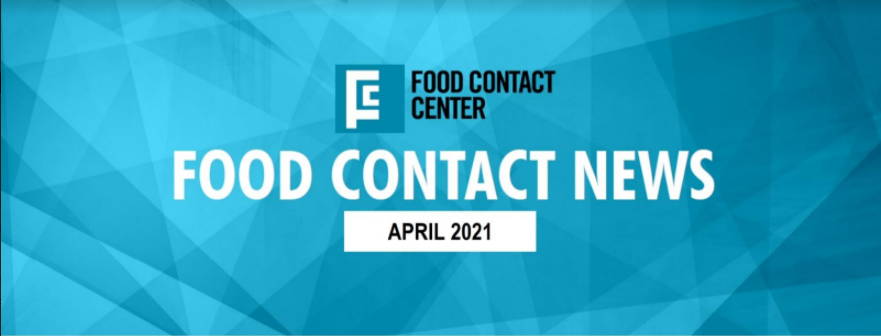NEWS

Food contact news – April 2021
GERMANY NOTIFIES WTO OF MOAH RESTRICTIONS
German authorities notify World Trade Organization (WTO) about intention to restrict mineral oil aromatic hydrocarbons (MOAH) in food contact materials and articles made from recycled paper and board; sets migration limit to food (<0.5 mg/kg) and food simulant (<0.15 mg/kg); will come into effect three years after publication.
The German authorities, supported by EFSA, have notified the World Trade Organization (WTO) of their intent to restrict mineral oil aromatic hydrocarbons (MOAH) in food contact materials and articles made from recycled paper and board under the nation’s Consumer Goods Ordinance (Bedarfsgegenständeverordnung, BedGgstV). The draft regulation attached to the WTO notification provides information such as a definition for waste paper pulp, functional barriers, and MOAH. Further, the document sets limits for MOAH migration to food (<0.5 mg/kg) and food simulant (<0.15 mg/kg) from food contact paper, paperboard, as well as cardboard made of recycled paper. The ordinance will come into effect three years after publication. In February 2020, a review article written by scientists from the German Federal Institute for Risk Assessment (BfR) had revealed a lack of safety data available on MOAH and that these impurities should be minimized in food and its contaminating sources.
WASHINGTON STATE TO BAN PFAS IN FOUR TYPES OF FOOD PACKAGING
Washington state has announced that, based on the availability of safer alternatives, per- and polyfluoroalkyl substances (PFAS) in four types of food packaging will be banned as of February 2023
By way of background, the state’s Toxics in Packaging Law was amended in 2018 to include a ban on PFAS in food packaging that would becomeeffective in January 2022 if safer alternatives were identified by January 2020. If safer alternatives were not identified by January 2020, then the ban will take effect two years after safer alternative products are identified and reported to the legislature (RCW 70A.222.070). The Washington Department of Ecology (DoE) released its first Alternatives Assessment Report for PFAS in food packaging last month. DoE evaluated ten food packaging applications to determine if safer alternatives to PFAS existed. Chemical hazards, exposure, performance, cost, and availability of alternative materials were considered.